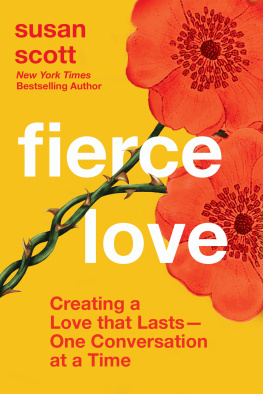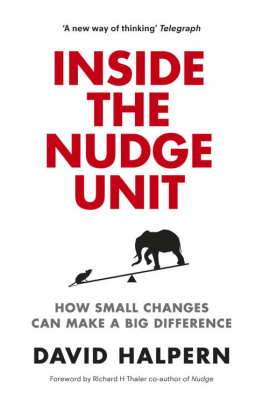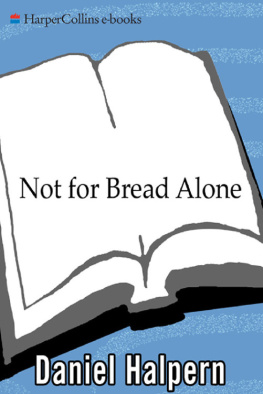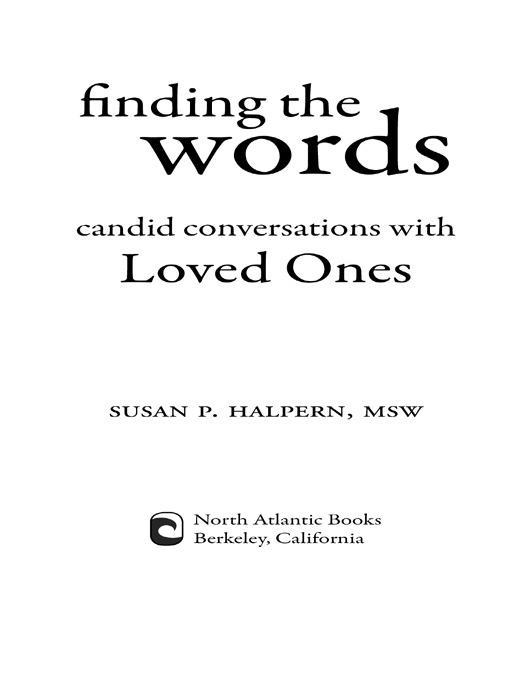Further praise for Finding the Words
Finding The Words is a one-of-a-kind treasure. It is a must-read for anyone navigating the often-tricky waters of effective and heartfelt conversations with loved ones. We all owe a debt of gratitude to Susan Halpern for bringing these inspiring stories and inspired principles into our lives. This book will save you countless hours of fear and frustration and maybe even a vital relationship or two.
CHARLES A. GARFIELD, PHD , founder of Shanti and clinical professor of psychology, Department of Psychiatry, UCSF
Challenging interactions and conversations are an inescapable part of life, but Susan Halperns words and wisdom help us navigate them.
ROGER WALSH, MD, PHD , professor of psychiatry, philosophy, and anthropology, University of California at Irvine and author of Essential Spirituality: The Seven Central Practices
This book is a gift for anyone wanting to heal and deepen relationships at any stage of life. Susan Halperns wisdom, experience, and the light of compassion shine through the words that show us how to release old patterns of behavior and open our hearts to more love in our lives.
FRANCES VAUGHAN, PHD , psychologist and author of Shadows of the Sacred
Susan Halperns second book turns out to be as valuable as her first, The Etiquette of Illness. I found Finding the Words to be an honest, open, and truthful aid in assisting individuals, families, and community members to find the necessary words to move through difficult life moments. I will keep this book on my desk as a reminder and a guide for those important life conversations with loved ones.
PATRICIA DE JONG , senior minister, First Congregational Church of Berkeley
I dedicate this book to my children and grandchildren
with love and appreciation for the joy they bring to me.

Acknowledgments
To begin this book, I needed to find a nurturing space and the time for deep reflection. I returned to the lake country north of Toronto, to the cottage of my friends Joy Davey and Lawrence Stibbard. On the shores of Lake Kabakwa, I began writing this book. On my return to Berkeley, with the support and expertise of Jane Anne Staw, my writing coach, I continued my work.
I am grateful to the staff of North Atlantic Books, who asked to see my book and then chose to publish it. Working with each of you has been a pleasure.
I want to thank the supervisors, mentors, and teachers from my thirty or more years as a psychotherapist. Each of you helped me to know myself and to believe in myself. My therapist friends have been helpful in many ways, particularly Lauren Friedman, Michael Pearlman, Susan Orr, Connie Holmes, Geri Rossen, Robert Gass, Judith Ansara Gass, Joy Davey, and Laurence Stibbard. I owe a special debt of gratitude to my friends who have talked to me about their perplexing lives and puzzled with me over what they did and might have done. I want to thank the people who gave generously of their time and personal experiences to help me understand specific issues in the book. I am grateful to them for discussing with me their life challenges, and for their insight and candor.
This book would not exist without my husband, Charlie, who has influenced my thinking, engaged with me through the years with love and acceptance, and read and reread this book with patience, enthusiasm, and a critical eye. My children, my grandchildren, and their spouses have taught me and supported me in my life, including and beyond this book. I thank you for being the caring sensitive people you are.
Contents
CHAPTER 1
CHAPTER 2
CHAPTER 3
CHAPTER 4
CHAPTER 5
CHAPTER 6
CHAPTER 7
CHAPTER 8
CHAPTER 9
CHAPTER 10
CHAPTER 11
CHAPTER 12
Introduction
When my mother was eighty-eight, I realized that I needed to talk to her about not driving anymore. Although I was not sure it was time for her to stop driving, I wanted to open the conversation. At the time we lived in different cities, so I waited until my next visit. On our way to the restaurant where we had planned to have dinner, she barely missed hitting a car. I was shaken and frightened. I wanted to proceed with tact, but instead I blurted out, I think you need to stop driving. You nearly hit that car.
I did not, and I am not ready, my mother retorted sharply.
Realizing I had done more damage than good, I stopped the conversation. I had let myself down and humiliated my mother. My tone of voice as well as the words I used must have felt to her like an attack. Now I wanted to run away from the topic and never bring it up again.
I returned home baffled about what to do, and learned many of my friends were dealing with the same issue. They talked to me about the ways they resolved this issue with their parents. They reminded me how sensitive an area driving is, and that I must let my mother know I recognize the painfulness of this life change. I began to think about what I might have done differently.
The driving issue with my mother started me thinking about difficult conversations with loved ones in a variety of situations. How to formulate sentences, when to speak, when not to speakall require consideration, love, and empathy. I thought about the many moments in personal relationships that would improve with preparation.
My thoughts then turned to my marriage of close to fifty years, which, with time, has gained in strength and richness. Yet my husband and I still tangle over petty comments, get caught by different expectations, and become angry over minor differences of opinion. Over the years we have had time to try out many ways to respond to these moments: mitigation, resolve, letting go, and even laughter. When I looked back at the principles, practices, and techniques that we have used in our moments of strife, I realize that the negative moments still come, but less often, less intense, and for a shorter duration.
I have written this book to offer ways to ride in the river of love, nourished by the waters, able to deal with the rocks, rapids, and twists as we move through our lives. My advice is based on my training and practice of psychotherapy for over thirty years, my own life experiences, and the stories of my clients, friends, and children.
In my 2003 book, The Etiquette of Illness: What to Say When You Cant Find the Words, I offered words for caregivers and patients to use with each other when illness dominated their interaction. From the letters and e-mails I received, I found that some readers like having actual words and phrases available to them in moments when they want to speak but are fearful they might get it wrong. Again I offer examples that minimize the details of the internal struggle, focusing instead on the principles of communication and suggested words to use while maintaining and often enhancing the relationship. Of course, these are only suggestions, points of departure. My suggestions can be used as they are or revised according to your particular situation and the loved ones involved.















